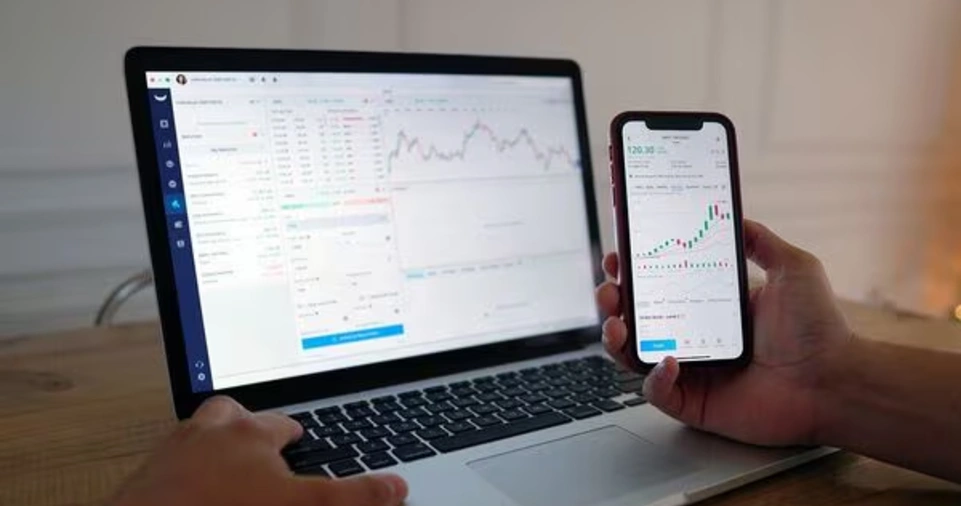Sustainability is no longer just a trend; it’s a necessity. As businesses look for ways to reduce their carbon footprint, increase transparency, and promote ethical practices, blockchain technology emerges as a powerful tool.
By leveraging blockchain’s decentralized and immutable nature, companies can create sustainable, trustworthy, and efficient business models.
This article explores how businesses can integrate blockchain for sustainable practices and drive meaningful change while also addressing potential challenges and opportunities.
Beyond its role in financial transactions, blockchain is now being used in various industries to improve sustainability efforts.
From renewable energy tracking to waste management, blockchain is helping companies maintain ethical sourcing, reduce inefficiencies, and build a greener future.
By providing verifiable data, blockchain ensures that companies are held accountable for their sustainability commitments, reducing the prevalence of greenwashing.
Understanding Blockchain and Sustainability
What is Blockchain?
Blockchain is a decentralized digital ledger that records transactions across multiple computers. It ensures transparency, security, and immutability, making it an ideal solution for various industries beyond cryptocurrencies. Blockchain networks are maintained by distributed nodes that validate and store data, eliminating the need for a centralized authority.
Unlike traditional record-keeping systems, blockchain’s decentralized nature ensures that data remains tamper-proof, secure, and easily accessible. This feature makes it particularly valuable for industries that rely on transparency and traceability, such as agriculture, logistics, and energy management.
How Blockchain Supports Sustainability
- Transparency and Traceability: Blockchain ensures complete visibility of supply chains, helping businesses verify ethical sourcing and production practices.
- Energy Efficiency Improvements: Some blockchain models, like Proof of Stake (PoS), significantly reduce energy consumption compared to traditional Proof of Work (PoW) systems.
- Waste Reduction: Smart contracts help optimize logistics, reducing material waste and inefficiencies.
- Carbon Footprint Tracking: Companies can track and verify carbon credits using blockchain-based platforms.
- Decentralized Governance: Blockchain enables collaborative decision-making for sustainability initiatives without intermediaries.
- Real-Time Monitoring: Blockchain-integrated IoT devices can track energy usage and resource efficiency in real-time, helping organizations make data-driven sustainability decisions.
Key Applications of Blockchain in Sustainable Business Practices

Supply Chain Transparency
One of the biggest challenges in sustainability is ensuring ethical sourcing and fair labor practices. Blockchain allows businesses to:
- Track raw materials from origin to final product.
- Verify sustainability claims using tamper-proof records.
- Reduce fraud and enhance trust with customers.
- Optimize logistics, minimizing waste and transportation emissions.
- Improve fair trade compliance by recording supplier and worker conditions transparently.
| Feature | Benefit |
|---|---|
| Immutable records | Prevents data manipulation |
| Smart contracts | Automates supplier compliance checks |
| Decentralization | Reduces reliance on third parties |
| Real-time tracking | Provides up-to-date supply chain visibility |
| Consumer access | Customers can verify ethical sourcing directly |
Carbon Credit Verification
Many companies purchase carbon credits to offset emissions, but verifying these credits can be difficult. Blockchain ensures:
- Real-time tracking of carbon offset projects.
- Elimination of fraudulent or double-counted credits.
- Greater accountability for businesses and governments.
- Efficient carbon credit trading with transparent pricing.
- Automated emissions reporting for regulatory compliance.
| Challenge | Blockchain Solution |
|---|---|
| Double counting | Unique, immutable records of credits |
| Lack of transparency | Open ledger accessible by all stakeholders |
| Inefficient tracking | Automated updates via smart contracts |
| Unverified claims | Ensures authenticity through cryptographic validation |
| Complex trading process | Simplifies transactions through tokenization |
Sustainable Energy Management
Blockchain can facilitate decentralized energy grids, allowing:
- Peer-to-peer energy trading for renewable sources.
- Transparent tracking of energy consumption and savings.
- Incentives for users to adopt green energy practices.
- Secure microgrid transactions between producers and consumers.
- Integration with smart meters to track and validate energy use.
Circular Economy Initiatives
A circular economy promotes recycling and reusing materials. Blockchain can support this by:
- Creating token-based incentives for recycling.
- Recording the lifecycle of materials to ensure proper reuse.
- Enhancing accountability in waste management.
- Enabling real-time data exchange between manufacturers and recyclers.
- Developing blockchain-based marketplaces for second-hand goods.
Challenges and Considerations
Despite its advantages, blockchain adoption for sustainability also faces challenges:
- Scalability Issues: Some blockchain networks struggle with transaction speeds and high costs.
- Energy Consumption: While PoS is energy-efficient, PoW-based blockchains still consume significant electricity.
- Regulatory Uncertainty: Governments are still developing regulations for blockchain-based sustainability programs.
- Initial Investment: Implementing blockchain solutions requires technical expertise and financial resources.
- Interoperability Challenges: Many blockchains operate in isolation, limiting cross-industry collaboration.
Businesses need to assess these factors before integrating blockchain into their sustainability strategy.
ALSO READ:How to Launch a Token on a DEX (Decentralized Exchange)
Case Studies: Blockchain in Action

IBM Food Trust
IBM uses blockchain to track food supply chains, ensuring sustainability and reducing waste. Retailers and consumers can verify the journey of food products, promoting transparency and reducing fraud.
Power Ledger
This blockchain-based platform enables peer-to-peer energy trading, allowing homeowners to sell excess solar power directly to others, reducing reliance on traditional energy grids.
Veridium Labs
Veridium leverages blockchain to tokenize carbon credits, making it easier for businesses to trade and track carbon offsets effectively.
Plastic Bank
Plastic Bank incentivizes recycling by providing digital tokens on a blockchain network, allowing communities to trade plastic waste for goods and services, reducing pollution.
Everledger
Everledger utilizes blockchain to track ethically sourced diamonds, ensuring conflict-free supply chains and promoting sustainable mining practices.
Steps to Implement Blockchain for Sustainability
- Identify Business Needs – Determine areas where blockchain can improve transparency, efficiency, or accountability.
- Choose the Right Blockchain Platform – Opt for eco-friendly blockchain networks such as Tezos, Algorand, or Hedera Hashgraph.
- Develop Smart Contracts – Automate processes like supply chain tracking and carbon credit verification.
- Ensure Regulatory Compliance – Adhere to environmental and financial regulations.
- Educate Stakeholders – Train employees, partners, and customers on blockchain benefits.
- Monitor and Optimize – Continuously assess the effectiveness of blockchain applications and optimize them for sustainability.
- Collaborate with Industry Leaders – Engage with blockchain consortia and sustainability groups to stay ahead of emerging trends.
Future of Blockchain in Sustainable Business Practices

The future of blockchain in sustainability looks promising, with innovations such as:
- AI-Driven Blockchain: Combining artificial intelligence with blockchain for enhanced decision-making in sustainability.
- Interoperability Solutions: Connecting multiple blockchain networks to increase efficiency and reduce redundancy.
- Tokenized Sustainability Incentives: Rewarding businesses and consumers for sustainable actions with digital tokens.
- Integration with IoT: Using blockchain with the Internet of Things (IoT) to monitor energy usage and reduce waste in real time.
- Green Smart Contracts: Developing blockchain-powered agreements that enforce environmental compliance automatically.
ALSO READ:How to Prepare for a Blockchain Fork
Conclusion
Blockchain is revolutionizing sustainable business practices by providing transparency, reducing waste, and enhancing energy efficiency. By integrating blockchain into operations, businesses can drive meaningful environmental change while building trust with consumers and stakeholders. Although challenges exist, continuous improvements in blockchain technology are making it more accessible and viable for sustainable initiatives.
Call to Action
Are you ready to embrace blockchain for sustainability? Start by evaluating your business needs and exploring blockchain solutions that align with your goals. Together, we can create a greener and more ethical future. Stay informed, collaborate with experts, and take action today!











